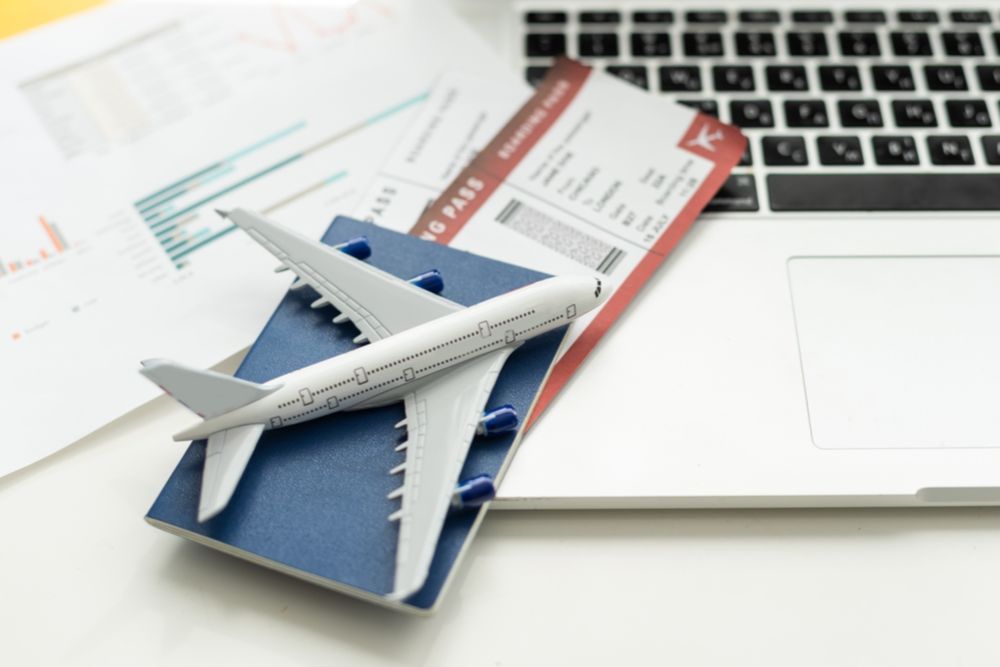Airfare is often the most expensive part of planning a vacation. But with the right strategies, you can cut that cost significantly—sometimes by hundreds of dollars. Whether you're booking a last-minute getaway or planning months ahead, being smart about when and how you book your flights can make a huge difference to your budget.
Here are practical, proven ways to save money on airfare without sacrificing your dream trip.
Be Flexible With Your Travel Dates
One of the best ways to score cheaper flights is to keep your dates flexible. Flying mid-week—especially on Tuesdays and Wednesdays—is often cheaper than traveling on weekends. Early morning or late-night flights also tend to cost less.
If you’re not tied to a specific date, use flexible date search tools to compare prices across an entire month. You’ll often spot steep discounts just by shifting your itinerary by a day or two.
Book at the Right Time
Timing matters when it comes to buying plane tickets. While there’s no perfect formula, many travel experts agree that the best window to book domestic flights is between 1 to 3 months in advance. For international trips, it’s often 2 to 6 months.
Booking too early can lock you into higher prices, while booking too late can cost you even more. Avoid last-minute purchases unless you're using travel rewards or standby options.
Also, flight prices can fluctuate during the day. Checking at different times—even during the middle of the week—may reveal better deals.
Use Flight Comparison Tools
Don't just rely on one site. Use flight comparison platforms to search multiple airlines at once. These tools show you a range of prices across various carriers, often uncovering hidden deals you wouldn’t see if you searched directly on airline websites.
You can also set price alerts, which notify you when fares drop on specific routes or dates. If you’re watching a particular destination, these alerts can save you from overpaying.
Fly Budget Airlines (But Read the Fine Print)
Budget carriers offer significantly lower base fares, especially for short-haul flights. But be aware—they often charge extra for checked luggage, seat selection, and even carry-ons.
Still, if you travel light and don’t need all the extras, these flights can be a great bargain. Just make sure to factor in total costs before booking, and always double-check baggage policies.
Mix and Match Airlines
Round-trip tickets are convenient, but they’re not always the cheapest option. Sometimes booking two one-way flights with different airlines costs less than a round-trip with a single carrier.
Use a travel search engine that lets you “build your own” itinerary using separate airlines for departure and return. This approach gives you more flexibility and a better chance of scoring the lowest fares in both directions.
Consider Nearby Airports
Major cities often have more than one airport—and prices can vary significantly between them. When searching for flights, expand your search radius to include nearby regional or secondary airports.
In some cases, flying into a smaller airport and renting a car or using public transit for the final leg of your journey can lead to substantial savings.
Use Airline Miles and Travel Rewards
If you travel often or have a travel-friendly credit card, your points and miles can make a serious dent in flight costs—or even make your trip free.
Even if you’re not a frequent flier, opening a travel rewards card with a strong sign-up bonus can net you enough points for a round-trip flight. Just be sure to use credit responsibly and pay off the balance in full to avoid interest charges.
Travel During Off-Peak Seasons
Flying during off-peak seasons—such as spring or fall—can slash flight costs in half. Destinations are less crowded, accommodations are cheaper, and airlines offer deals to fill seats during slower periods.
Avoid traveling during holidays, school breaks, or major events unless absolutely necessary. Even shifting your trip by a week can result in much lower fares.
Clear Your Browser Cache or Use Incognito Mode
There’s ongoing debate about whether airline sites track your searches and raise prices based on demand. But many travelers claim they’ve seen prices go up after repeated searches for the same route.
To be safe, search in incognito/private mode or clear your browser cache before booking. This helps avoid possible price hikes tied to your browsing behavior.
Consider Alternative Routes and Stopovers
Direct flights are convenient, but flights with a stopover can be much cheaper. If you're not in a rush, consider booking a slightly longer itinerary with one or two layovers.
In some cases, you can even plan a multi-day stopover in another city at no extra charge—giving you a bonus destination for the same price.
Just be sure you’re comfortable with the added travel time and that you have sufficient layover windows.
Avoid Extra Fees With Smart Packing
Airlines rake in billions through baggage fees, but you don’t have to contribute. Learn to pack light and stick to carry-on luggage when possible.
Use packing cubes to save space, and wear your bulkiest clothes on the plane. Weigh your bag before heading to the airport to avoid surprises at check-in.
Even if you pay for a checked bag, doing so at the time of booking is almost always cheaper than waiting until you arrive at the airport.
Join Frequent Flyer and Email Programs
Airlines reward loyalty. Sign up for frequent flyer programs even if you only fly occasionally—you’ll still earn miles, get notified about flash sales, and sometimes receive upgrade opportunities.
Also, subscribe to airline email lists or deal newsletters. Many of them announce exclusive fare sales to subscribers first. A little inbox clutter might be worth the price drop.
Book as a Solo Traveler (Then Add Others)
If you’re booking flights for a group or family, try searching for just one seat first. Airlines tend to charge higher fares when booking multiple tickets together because they average the price across available fare classes.
Once you see the best price for one person, check if the same fare is available for the rest individually. It’s a small step that could save you a decent chunk of money on group bookings.
Saving money on flights isn’t just about luck—it’s about strategy. With flexible dates, smart booking habits, and a willingness to explore less obvious routes or carriers, you can dramatically lower your travel costs.
Every dollar saved on airfare means more room in your budget for unforgettable experiences, better meals, or a few extra nights in paradise. The next time you plan a trip, use these tips and watch your vacation budget stretch further than ever before.





